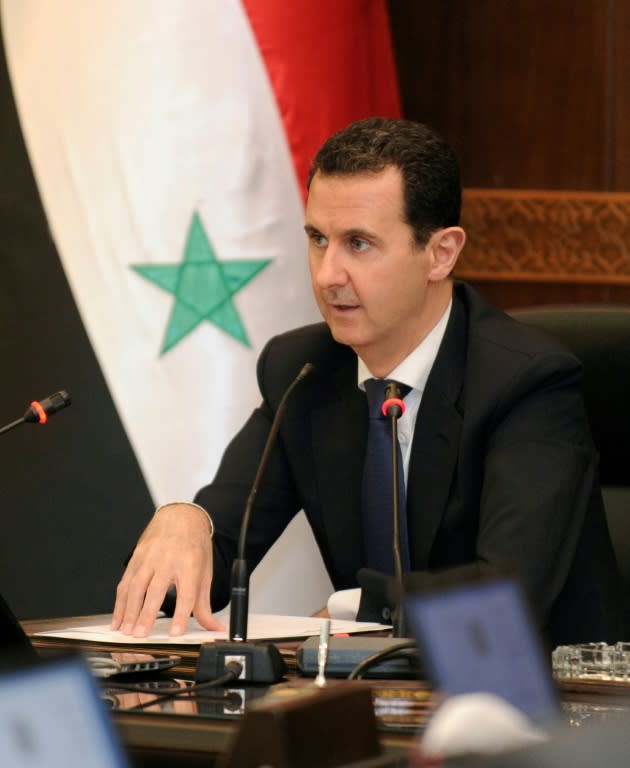US says Assad may be preparing chemical attack, warns ‘heavy price’
Syrian President Bashar al-Assad may be preparing another chemical weapons attack, one that would result in the "mass murder" of civilians, the White House said Monday, warning the regime would pay a "heavy price" if it went ahead with such an assault. The White House said the preparations were similar to those undertaken by the Assad regime ahead of an apparent chemical attack on a rebel-held town in April. Washington launched a retaliatory cruise missile strike days later against a Syrian airbase from where it said the chemical weapons attack was launched. That assault with 59 Tomahawk missiles marked the first direct US attack on the Syrian regime and Trump's most dramatic military action since he took power in January. It also led to a quick downward spiral in ties between Washington and Moscow, which accused the US of breaking international law. Russia has supported the Syrian regime since 2015 with air strikes against what it says are Islamist extremists. "The United States has identified potential preparations for another chemical weapons attack by the Assad regime that would likely result in the mass murder of civilians, including innocent children," spokesman Sean Spicer said in a statement Monday night. The two-paragraph communique did not offer any evidence justifying the sternly worded warning. "The activities are similar to preparations the regime made before its April 4, 2017 chemical weapons attack." The suspected attack in April in the rebel held town of Khan Sheikhun killed at least 87 people, including many children, and images of the dead and of suffering victims provoked global outrage. The US State Department said it amounted to a war crime. State Department officials who would normally be involved in a big announcement such as Monday's warning to Syria said they were caught by surprise, the Los Angeles Times reported. British Defense Secretary Michael Fallon told the BBC Tuesday morning he would support US military action in case of a Syria chemical attack. "As always in war, the military action you use must be justified, it must be legal, it must proportionate, it must be necessary. In the last case it was," Fallon said. "If the Americans take similar action again, I want to be very clear -- we will support it." In early reaction from Moscow, Franz Klintsevich, deputy chairman of the defense commission of the upper house of the Russian parliament, said the US warning heralded a new attack on Syrian forces under the pretext of the alleged preparations for a chemical attack. "This is clear. A cynical and unprecedented provocation is under way," he said in Moscow. - 'No doubt' - Assad, backed by Russia, has strongly denied the allegation that his forces used chemical weapons against the town in April, describing it as a "100 percent fabrication". He has said repeatedly that his forces turned over all chemical weapons stockpiles in 2013, under a deal brokered by Russia to avoid threatened US military action. The agreement was later enshrined in a United Nations Security Council resolution. But US Defense Secretary Jim Mattis previously warned that there was "no doubt" that Syria had in fact retained some chemical weapons. An Israeli military assessment also found that Assad's regime was still in possession of "a few tonnes" of chemical weapons. "As we have previously stated, the United States is in Syria to eliminate the Islamic State of Iraq and Syria," Spicer added in his statement Monday. "If, however, Mr Assad conducts another mass murder attack using chemical weapons, he and his military will pay a heavy price." Syria's war began in March 2011 with anti-government protests that spiralled into a complex and devastating conflict that has killed more than 320,000 people. Russia is flying a bombing campaign in Syria in support of Assad, while the US is heading a coalition mainly targeting IS. Neither Washington nor Moscow have managed to find a solution to the conflict. Rebels are now on the back foot after regime advances with support from allies Russia and Iran. The US-led coalition and allied fighters are battling to oust the IS group from its Syrian bastion Raqa. The coalition is also backing a major assault on the last IS-held pockets of Mosul in neighboring Iraq.




